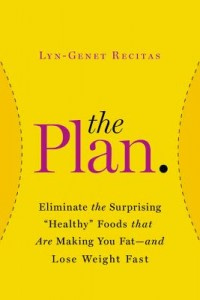Nourishing Immune Building Soup For the Soul

Carolyn Burris, MS, Nutrition Forum Health Knoxville February 20, 2019 Feeling under the weather and a cold or virus coming on? You have choices! So, let’s take a healthy step by making this tasty immune fighting soup. Here are some of the benefits in the soup’s ingredients. Coconut Oil– has […]
Dorothy, there is no place like home!

Yard to table blog exists to highlight and integrate natural therapies into the everyday life. Natural, Healthy living is not hard. In fact, the means to live Healthy is all around us. Most just need to start. Most just need to take that first step towards Health. So many of the toxins […]
What is a Heart Healthy Diet?

What is a Heart Healthy Diet? As I mentioned last month, I want to devote this blog to a healthy diet with an emphasis on heart health and disease prevention. My hope is that I will encourage you to be your own best health advocate on what you should eat. One word I want you […]
Something “Fishy” Is Going On: GMO Salmon, Mislabeling of Fish, and a Healthy Trout Recipe!

The American Heart Association, as well as the 2010 dietary guidelines from the U.S. Government, both advise eating eight ounces of seafood, or two seafood meals a week, particularly because of their “heart healthy” omega-3 levels. However, U.S. consumers are often given inadequate, confusing or misleading information about the fish they are actually buying.
An Apple a Day? Healthy Choices vs. Inflammation

My pre-60th birthday journey to improve my previous test results from Seasons of Farragut continues! This month I decided to focus on the first tenet in our Forum Health Knoxville wellness regimen – nutrition!
About two years ago I took the ALCAT test and was astonished at my lengthy list of reactive foods! The ALCAT is a fascinating food sensitivity test in which white blood cells are introduced to a variety of foods, chemicals, and herbs. The severity of the reaction determines if a substance is mild, moderate, severe, or normal within my body. Since knowledge is power, I decided to receive the news that gluten and dairy were on my “severe list” as a positive indicator rather than “buyers’ remorse” for having performed the test!
Lyn-Genet Recitas has written a book, The Plan, which explains how inflammation from food intolerance can cause symptoms such as joint pain, skin disorders, fatigue, weight issues, headaches, and digestive disorders. Whereas a food allergy can have almost an immediate effect, a food sensitivity may not show up for several hours to 3 days later. For weight gain, it’s not as much about the calories as the chemistry of the body. One person may benefit from last night’s salmon and broccoli, but someone else may actually gain 2 pounds. Inflammation from food intolerance causes damage to the lining of the gut. As the lining becomes “leaky” with gaps present, foods begin to slip through not completely digested. This causes the body to attack undigested foods.
As we age, inflammation can increase which causes our systems to slow down. Many of us have much less stomach acid and digestive enzymes to break down food. This can ultimately alter our weight and our health. Reactive foods cause our bodies to produce more histamine which causes water retention via dilated capillaries. The brain responds by increasing the production of Cortisol. As more Cortisol is produced, fewer sex hormones are produced since both sets of hormones depend on the same building blocks. Increased Cortisol causes an increase in glucose which causes an increase in blood sugar! This domino effect alters the good bacteria in the gut and can increase yeast production. The altered gut flora leads to a weakened immune response since about 70% of our immune system is in the gut.
4 Foods That Build The Immune System

The cooler seasons brings temperatures that challenge our immune systems. Here are 4 foods to build our health and keep our immune system hardier through the fall and winter.
Smart Foods to Help You Focus and Boost Productivity by Cody Larson

You’ve no doubt heard the old saying “You are what you eat.” Well, recent medical research has highlighted links between diet and improved mental functioning, raising the distinct possibility that, in fact, “You think what you eat.”
That could be encouraging news for youngsters diagnosed with attention deficit hyperactivity disorder (ADHD), seniors struggling with the onset of dementia and anyone who desires to think more clearly and focus for longer periods of time.
Lots of foods are rich in the vitamins and other nutrients that can boost cognitive functioning, some which are well-known and others that are less-familiar. Among them:
10 Ways to Increase Your Water Intake

Water is an essential part of the human body. There isn’t a single bodily function – seeing, hearing, thinking, exercising, singing, and even laughing – that does not rely on water. Here are 10 tips on how to increase your water intake.
Meal Planning Made Easy with Online Recipe Resources!

“If you fail to plan, you are planning to fail,” said Benjamin Franklin. This statement holds true in many areas of life, including meal planning. Here are some great online resources for planning meals in advance.
Detoxing for YOUR Health!

If you have not been committed to healthy eating, a lifestyle change is needed and foundational in improving your body’s ability to remove toxins. You can start today by making healthier decisions about what you eat.
Falling for Fall Fruits and Vegetables

As we move into the fall season with its beautiful colors, we are reminded also of the vibrant colors in our fall fruits and vegetables that are packed with vital nutrients, preparing us for the colder weather ahead. From September to November, the autumn harvest brings a variety of healthful and delicious produce, from […]
6 Healthy Snacks for the Super Bowl

Super Bowl parties are full of snacks loaded with calories, fat and preservatives. Resist the urge to splurge! These tasty treats will help create a deliciously healthy Super Bowl party.
Nibble on This! Drink Water!

Most people do not get enough water, especially during these hot summer months. Lack of water or dehydration, can cause many health problems, sometimes severe. These include fatigue, weakness, muscle cramps, light headedness when standing, headaches and more.
